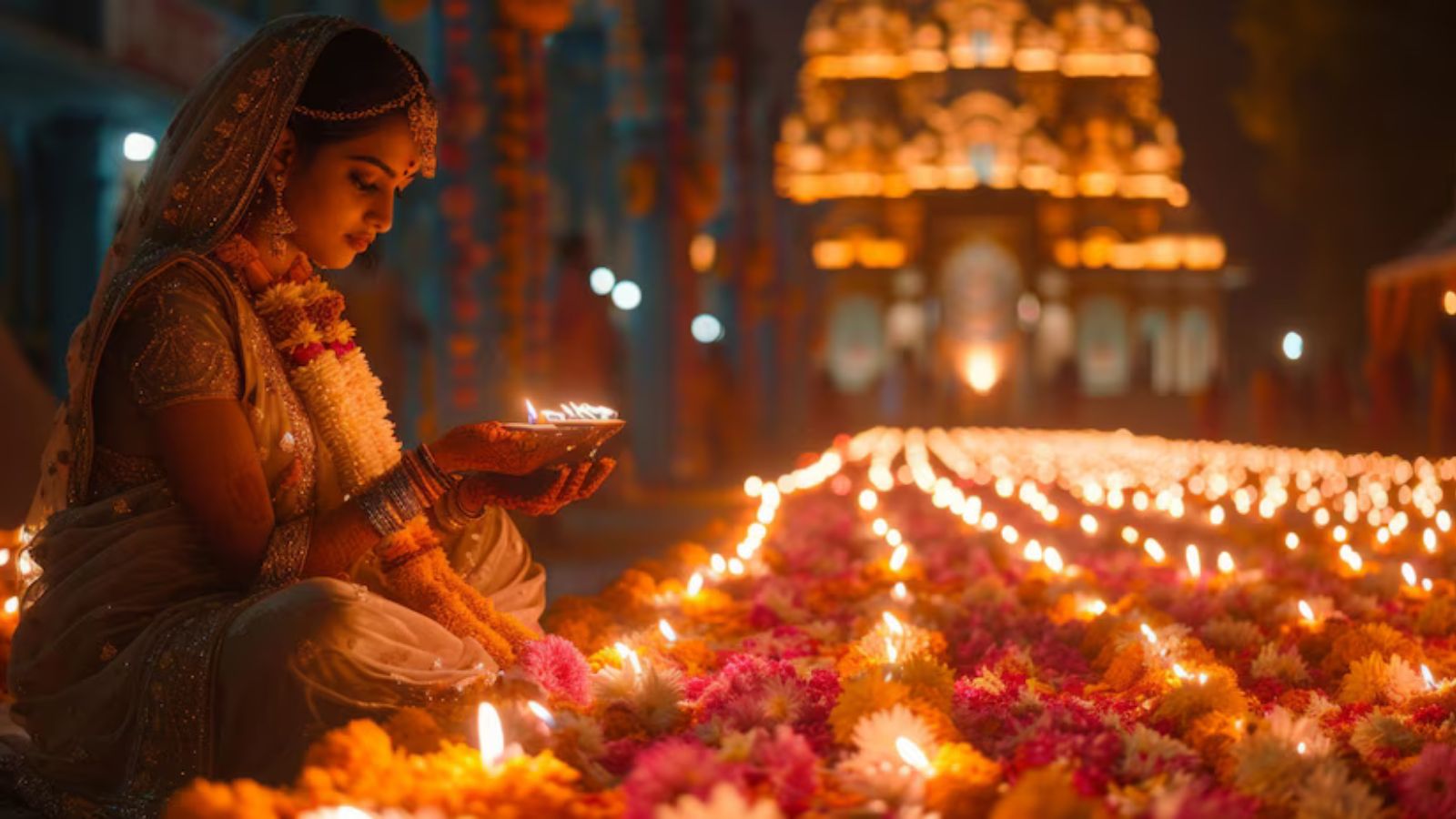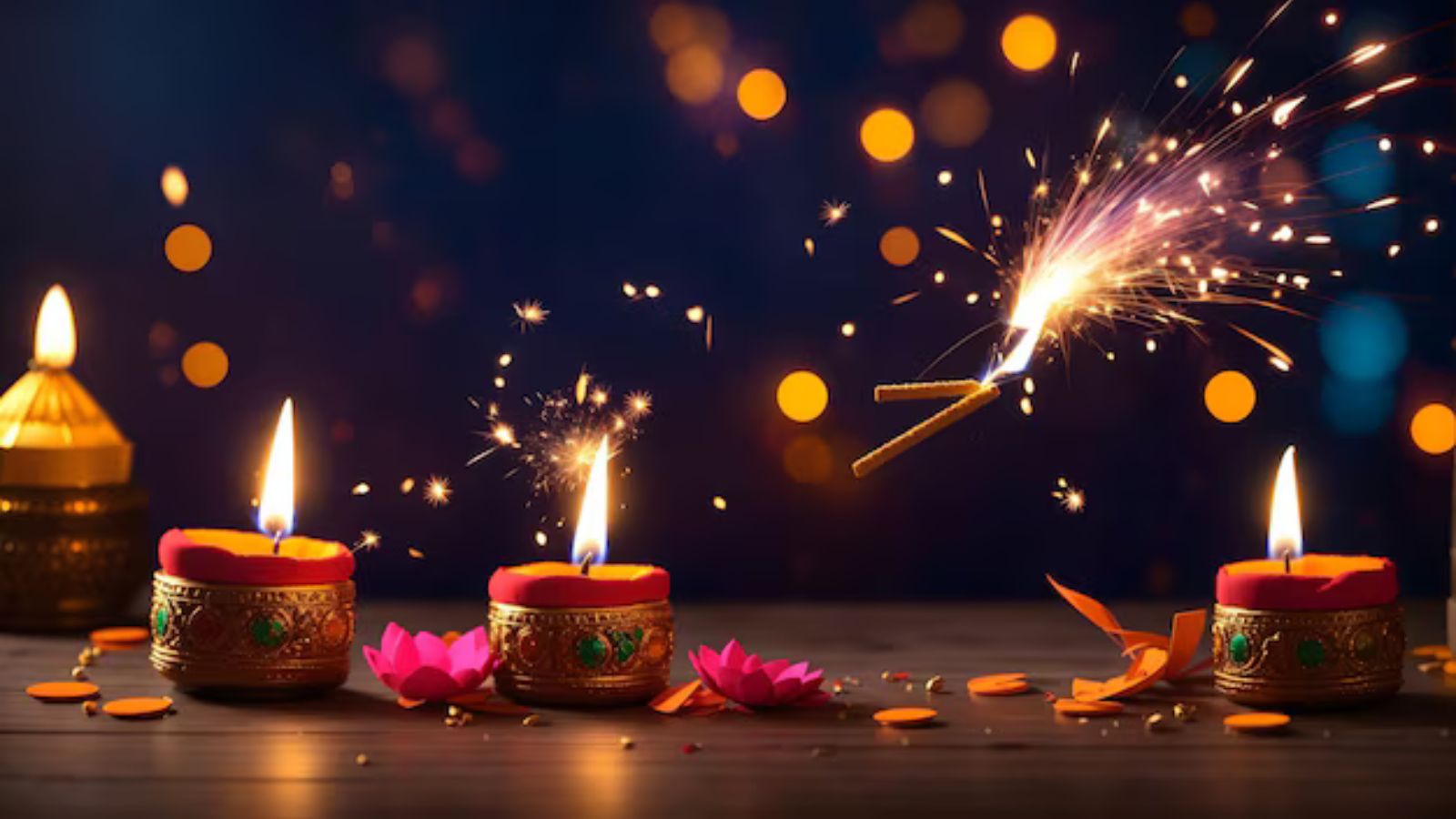Beyond the Bling: The True Meaning of Diwali
Oct 18, 2024
Imagine the night when darkness fades away in a spectacular light show, the air filled with the entrancing fragrance of fire and fireworks, traditional sweets, ancient rituals, and modern celebrations woven together compellingly for an ultimate experience. And that is Diwali, or the Festival of Lights, sweeping the globe, crossing cultures, and ensnaring hearts.
On this ancient festival time for the Hindus of India and abroad, good always wins over evil, joy over woe, and prosperity over poverty. Diwali has everything: rangoli patterns are drawn intricately on the door, and fireworks light up the night sky. It's an overdose of colour, sound, and light.
But Diwali cannot be and is not just a feast for the eyes. It's a joy in tradition and family, people coming together, sharing stories, and most importantly, creating memories that no one can take away. Whether it's lighting diyas with loved ones indulging in delectable feasts prepared especially to celebrate the day, or simply standing in awe at spectacular light sound and colour displays, it is something for each of us in Diwali.
We take off on a journey of magic in this article as we look into the history, traditions, and spiritual depth of Diwali while pondering why it is celebrated in India and around the world.

The Story Behind Diwali
Actually, lying beneath this great festival of Diwali is the age-old story. The numerous region-specific as well as religion-specific stories that give life to the festival are varied but the main story is derived from the Indian epic, the Ramayana.
Diwali is that day when Lord Rama returned to his kingdom, Ayodhya after being out for 14 years in exile when he finally defeated the demon king, Ravana. As it was said that King Rama was the beloved king for the people of Ayodhya, they lit the lamps all over the kingdom so that their beloved king could find his way home and this is how this festival of Diwali symbolized the defeat of good over evil. Even today, the tradition of lighting the lamps has continued, and that is why the festival is called "Festival of Lights.".
Other Hindu traditions associate the victory of Lord Krishna over the evil demon Narakasura and the incarnation of Goddess Lakshmi, the goddess of wealth and prosperity. It even celebrates the day when Lakshmi came out from the ocean during a churning-an event bringing fortune to the world it becomes an excellent opportunity for women to depict their apprehension of values.
Jainism particularly marks the festival as marking the era when the 24th Tirthankara, Lord Mahavira attained Nirvana or eternal bliss. The date becomes an important one for Sikhs in respect of being a festival that commemorates the festival celebrating the release of the sixth Sikh Guru, Guru Hargobind Ji from prison.
The Five Days of Diwali
Diwali is not a festival of one day; it's rather celebrated for five days. Each day has its significance and importance. Let us take a look at some of those magical days and their meaning
1. Dhanteras (Day 1)
The celebration of the Diwali festival goes on for five days consecutively. It begins with Dhanteras. People call on Dhanvantari- the god of medicine and health and Goddess Lakshmi on this day. On the day of Dhanteras, people buy utensils, jewellery, or precious metals to attract prosperity and good fortune to the house. Whatever is brought on Dhanteras brings wealth to the person. This day also marks the great beginning of celebrations, as houses are cleaned and prepared to welcome the gods.
2. Naraka Chaturdashi or Chhoti Diwali (Day 2)
Lord Krishna, after killing the demon Narakasura, washes away ignorance and fears. Traditionally people get up very early to make aromatic oils application and bathe away the sins of the previous year. In the evening, making small fireworks and sweets along with the family congregation, people prepare to celebrate the grand festival on the main day of Diwali.
3. Lakshmi Puja (Day 3)
The third day is the most critical of all, which is worshipped with extreme devotion. The people do the Lakshmi Puja to worship Goddess Lakshmi whom people see as their goddess to bless them with health, wealth, and prosperity. The home gets beautifully decorated with the most gorgeous rangoli made up of colour powders or flowers all around. The soft glow of diyas and candles light up every nook and corner of the house. People come together and enjoy their feasts and gift-giving. They also burst firecrackers to lighten up the night. On this day every Diwali, happiness and glory reaches the extreme point.
4. Govardhan Puja (Day 4)
It is Govardhan Puja somewhere; it is a festival wherein Lord Krishna lifted Mount Govardhan to save the villagers of Vrindavan from heavy rains. It symbolizes nature, humility, and faith. People prepare humongous piles of food to offer to Lord Krishna, which is referred to as Annakut, thanking the earth for all the good that it has given.
5. Bhai Dooj (Day 5)
Bhai Dooj is on the last day of Diwali. It is the bond of brothers and sisters. Sisters pray for good health. On their forehead, a tikka is put all ceremoniously, as well as sweets are offered. Brothers send the blessings given. Bhai Dooj increases family bonding and symbolizes love and care.

Why We Celebrate Diwali: The Deeper Meaning
However, beyond the story and myth is a much deeper and philosophical meaning of Diwali. It is a festival of light-outer and inner. It is all about letting the darkness of life leave and lightening up our hearts with virtues like love, compassion, and kindness. Here's a closer look at the broader themes of Diwali:
1. Victory of Good over Evil
In each one of the stories associated with Diwali-from Rama's victory over Ravana, to Krishna's over Narakasura, to Mahavira's Nirvana success message is much the same: good always triumphs over evil. Diwali is encouraging us to have faith in the good and to fight the battle of life with rectitude and guts.
2. Spiritual Enlightenment
The flame of the Diwali lamp lights up the glow of the light and the theme of knowledge and wisdom, eradicating all darkness of ignorance. Just as bright burning flames thereof we must ignite the flame of self-awareness in us and spiritual awakening so that we realize some of the deeper truths of life and the universe.
3. Prosperity and New Beginnings
Diwali is also used as a welcome of new beginnings-for a new business venture, perhaps buying a house, or making an important decision in life. Lakshmi puja is an invitation of prosperity to life. But it reminds one that most such virtues, such as generosity and contentment, are material wealth and lie unutilized.
4. Unity and Togetherness
Perhaps one of the most beautiful things about Diwali is that it brings all those who are unconnected together. Families reunite, and communities celebrate even as a stranger smiles back at one another. This deep feeling of togetherness where people share sweets light up lamps and bask in the spirit of unity makes Diwali a festival transcending all barriers.

Conclusion: A Festival of Eternal Light
Diwali marks not just the beginning of lights; it is more than that. It symbolises the celebration of life. It inspires each one to do better, to be kinder, to be brighter with the light that lies within each one of us. In the dimly lit lamps lighting up our homes, we are reminded that however bleak the prospects of life may be, hope and goodness will win over the darkness.
This Diwali, let us look within as we light our diyas. We let go of the negativities and open ourselves up to all things good with love and happiness so that we spread this message to everyone around us. And because, all these fireworks and sweets are but sidelights, yet the real essence is in this glow in your heart.
Kiomoi wishes you and your family Happy Diwali!